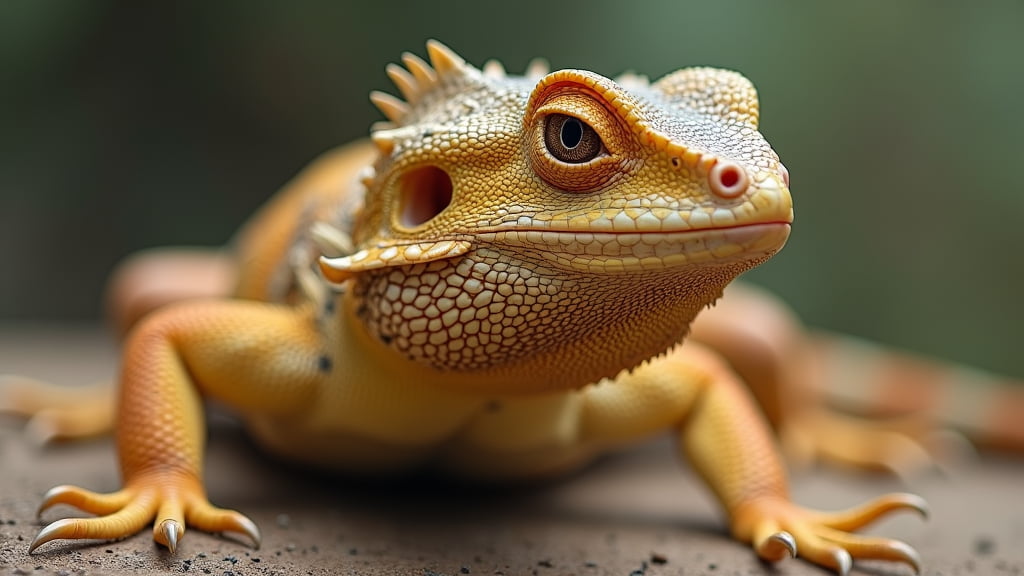Bearded Dragon Recovery Tips: Ensuring a Swift and Healthy Comeback
Bearded dragons, with their charming personalities and manageable size, have undoubtedly found a special place in our hearts and homes. However, like any other pets, they too can fall ill or face injuries, necessitating a period of recovery. Knowing how to support your bearded dragon effectively during this time can make all the difference in their recovery speed and overall well-being. This post will dive deep into practical bearded dragon recovery tips, ensuring that your scaly friend is back to their lively self in no time!

Regular Vet Check-Ups and Immediate Post-Treatment Care
The Importance of Veterinary Guidance
First and foremost, it’s crucial to get professional advice if your bearded dragon is unwell. Just as we rely on doctors, our reptiles depend on qualified veterinarians. Always follow the vet’s instructions closely, whether it’s medication dosages, wound care, or dietary changes. Though I have ample experience caring for my own reptiles, every bearded dragon is unique, and professional healthcare guidance is irreplaceable.
Setting up a Recovery Habitat
A quiet, stress-free environment is critical during your bearded dragon’s recovery phase. Ensure the terrarium is at optimal temperature and humidity levels:
- Basking area: 95-105°F (35-40°C)
- Cooler area: 75-85°F (24-29°C)
Maintaining the proper temperature gradient helps regulate their body temperature efficiently.
Nutrition and Hydration: The Cornerstones of Recovery
Hydrating Effectively
Proper hydration is essential for your bearded dragon’s health, especially during recovery. Offer fresh water daily:
- Mist your dragon: This can stimulate drinking.
- Bathing: A shallow lukewarm bath can encourage hydration.
Optimising Nutrition
During recovery, a high-quality diet can accelerate healing:
- Protein-rich insects: Dubia roaches and crickets are excellent choices.
- Vitamin supplements: Ensure that their diet is supplemented with calcium and other essential vitamins to aid in recovery.
- Vegetable variety: Incorporate dark leafy greens like collard greens and dandelion greens for a nutritious diet.
Environmental Enrichment and Mental Well-being
Creating a Stimulating Environment
Mental stimulation can significantly affect recovery times. While it’s essential to limit stress, a few light enrichment activities can be beneficial:
- Simple puzzle feeders: These can encourage your bearded dragon to move and think without overwhelming them.
- Gentle handling: This can improve their mood and boost recovery.
Camouflage and Hiding Spots
Recovery periods might make your dragon feel vulnerable. Ensure that their terrarium has:
- Hiding spots: Provide ample areas where they can retreat and feel secure.
- Visual barriers: These can reduce stress and create a sense of safety.
Monitoring Progress and Knowing When to Seek Help
Keeping an Observation Journal
Documenting your bearded dragon’s behaviour and physical condition can help track their progress.
- Daily logs: Note their feeding habits, activity levels, and any changes in their physical appearance.
- Photographic records: These can be helpful for comparison and sharing with your vet.
Red Flags
Understanding the signs that things are not improving is crucial:
- Persistent lethargy: Ongoing lack of energy is a cause for concern.
- Refusal to eat: If your dragon continues to avoid food, it’s time to see the vet again.
- Worsening physical condition: Any signs of deterioration should prompt immediate professional intervention.
Conclusion
Providing exceptional care for your bearded dragon during their recovery not only hastens their return to health but also strengthens the bond you share. Whether it’s meticulous habitat management, nutritional care, or mental enrichment, your diligence can significantly impact their well-being. Always remember, though your personal experience and observations are vital, nothing replaces the expertise of a qualified vet. So if in doubt, seek professional advice to ensure your beloved pet is on the right path to recovery.
If you found this post useful, feel free to explore our other Bearded Dragons articles and FAQs for more in-depth information on caring for your fascinating reptilian friend.
For additional products to aid in your bearded dragon’s recovery, consider visiting our product page, or check out this recommended product.
Meta Description: Discover essential bearded dragon recovery tips, covering vet guidance, optimal nutrition, hydration, and environmental enrichment for a healthy comeback.

